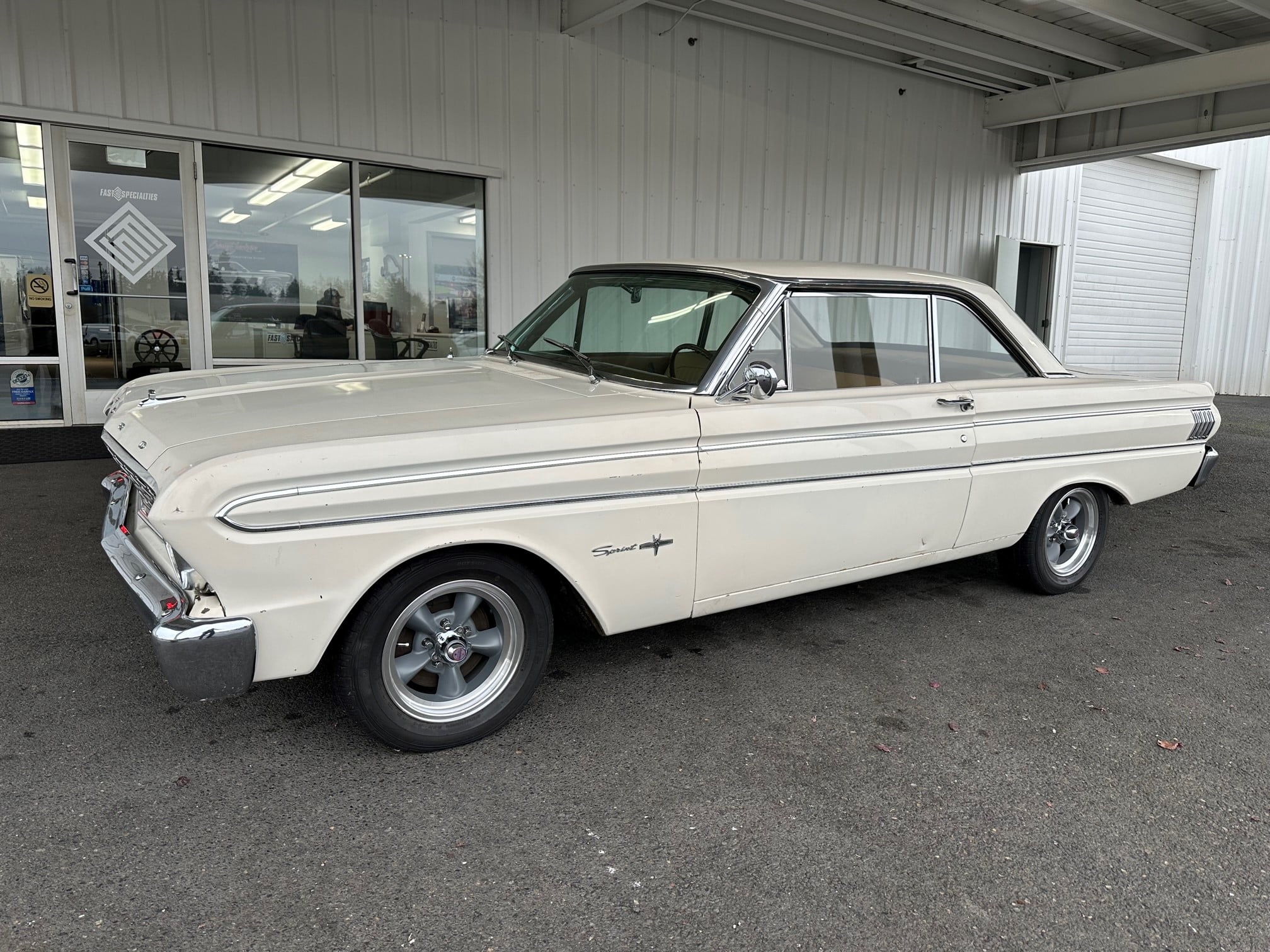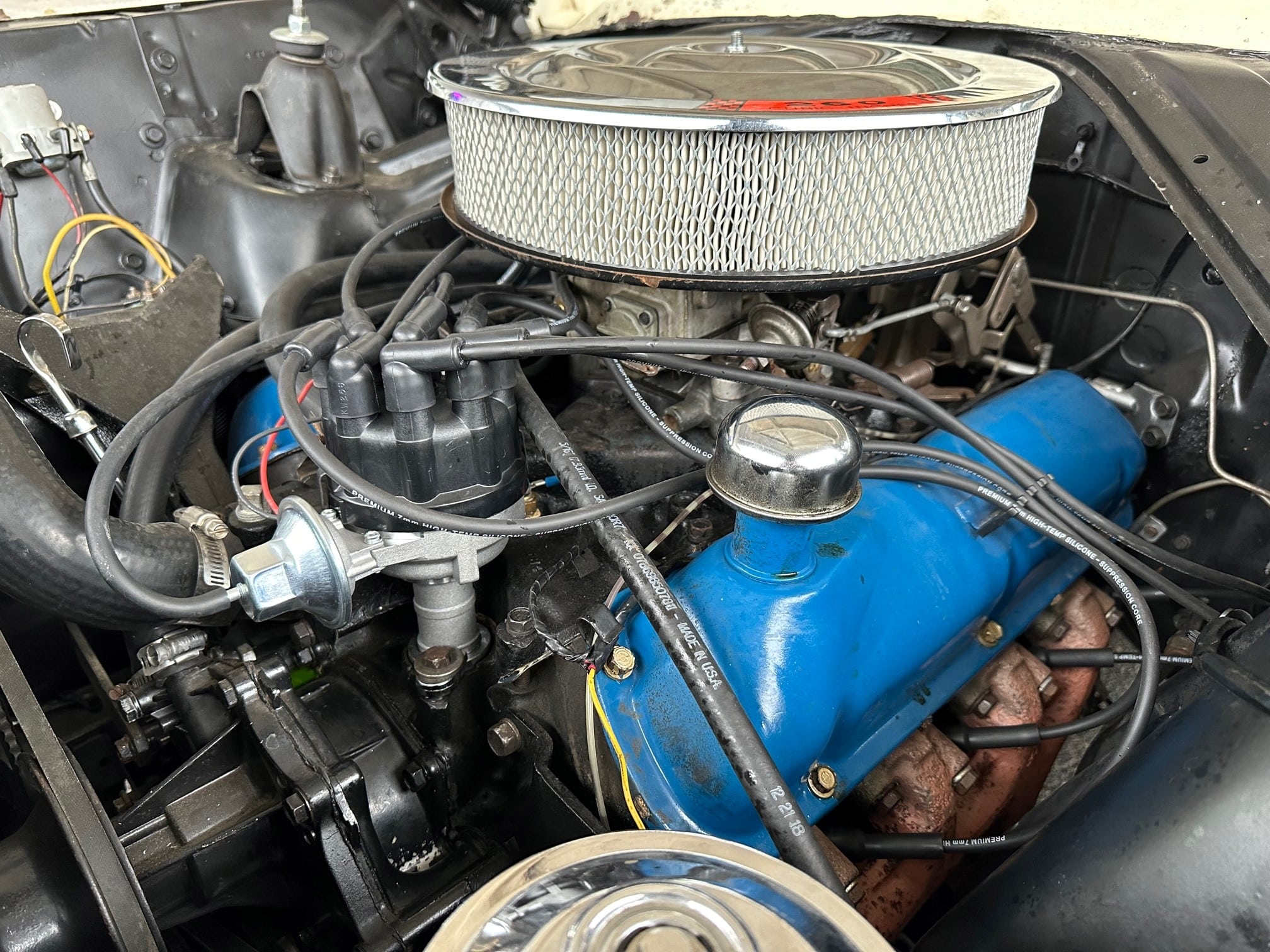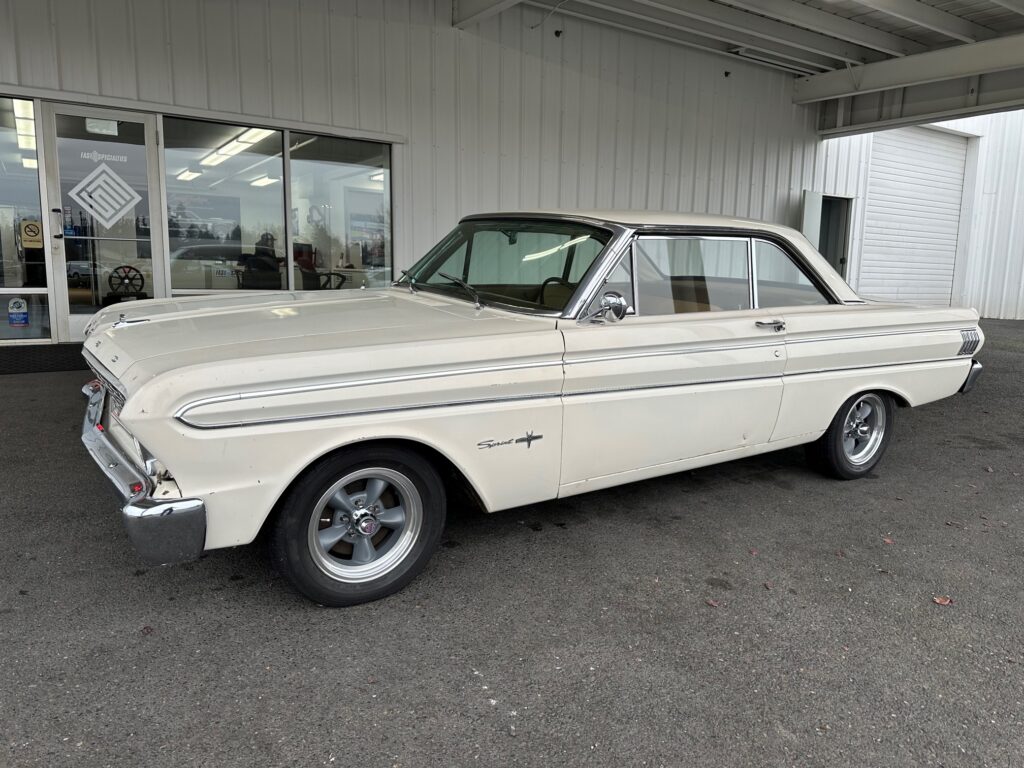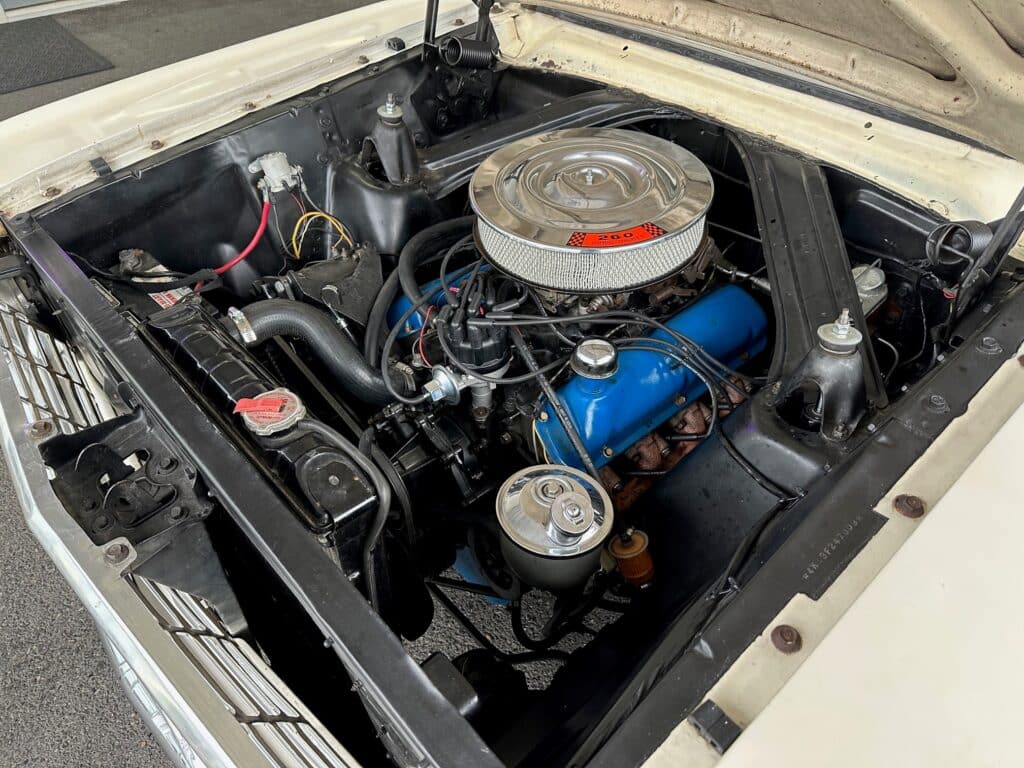
A customer of ours came in inquiring about having his largely all original summer cruiser only 1964 Ford Falcon converted over to fuel injection so that it would run better. After chatting with him about the car and his goals, we all agreed that giving the carburetor a good going through, and converting the ignition over from points to all electronic ignition would be a more cost effective solution that would meet all of his goals while also keeping the car closer to original. The car barely made it in sputtering and coughing. We replaced the distributor with a Pertronix unit that looks OE but has modern internals, cleaned out the carburetor, replaced the accelerator pump and did plugs and wires on it. The car now runs great, and the owner couldn’t be happier with the performance although his test drive was cut short by Pacific Northwest rainstorms. While converting it over to fuel injection would have been a bigger and more profitable job for us, we just didn’t think it was the answer in this application. Getting what you’ve already got running correctly can make you totally fall in love with a car all over again, and it doesn’t have to empty your pockets. Today’s modern fuels that include ethanol are great for making power, as oxygenated fuel burns better. However, the classics out there running carburetors just aren’t designed for it. Pair that with a car that only sees seasonal use, and the characteristics of modern fuels to absorb and retain ambient moisture and it’s likely your classic will run rough. Locally we are seeing a lot more service stations offering “clear” ethanol free fuels in recent years. This fuel is the right choice for lawn equipment, classic cars, boats, and any internal combustion engine that only sees seasonal use or is going to be stored for an extended length of time.



